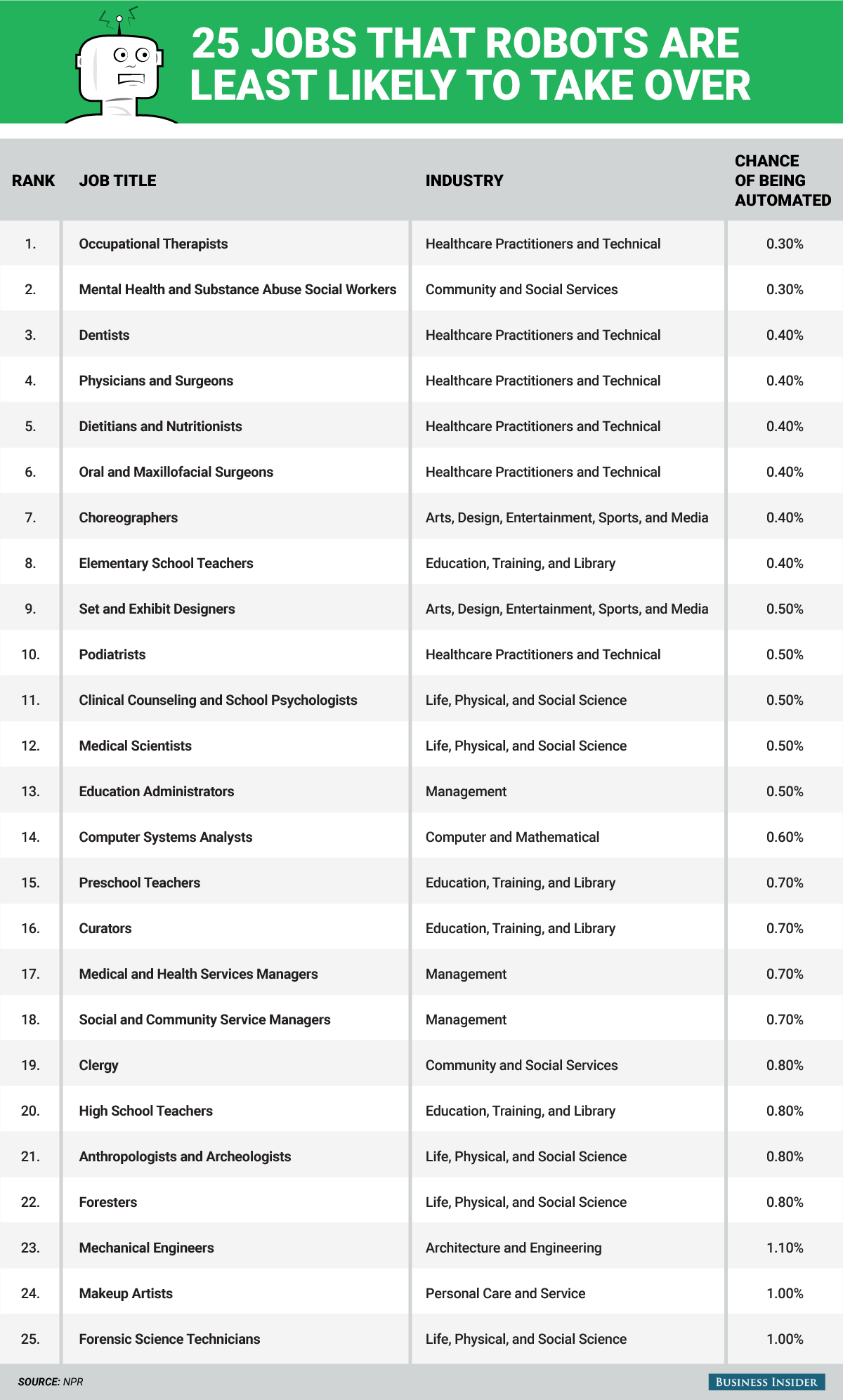Healthcare workers are in the clear...for now.
By Kathleen Elkins and Skye Gould
We recently published a list of jobs that robots are most likely to take over, which consisted of a surprisingly high number of white-collar occupations.
The good news is, there are also plenty of jobs that are relatively safe from robots.
NPR recently posted a guide created by researchers that predicts the chance of our jobs being automated within the next 20 years.
To make their projections, the experts scored jobs across 21 industries on nine possible traits, the four most important being: cleverness, negotiation, helping others, and squeezing into small spaces.
Those in the healthcare industry appear to be in the clear, for the time being that is.
Here are the most secure jobs, according to NPR's algorithm:
We recently published a list of jobs that robots are most likely to take over, which consisted of a surprisingly high number of white-collar occupations.
The good news is, there are also plenty of jobs that are relatively safe from robots.
NPR recently posted a guide created by researchers that predicts the chance of our jobs being automated within the next 20 years.
To make their projections, the experts scored jobs across 21 industries on nine possible traits, the four most important being: cleverness, negotiation, helping others, and squeezing into small spaces.
Those in the healthcare industry appear to be in the clear, for the time being that is.
Here are the most secure jobs, according to NPR's algorithm:






